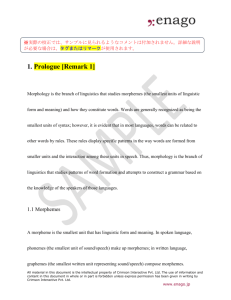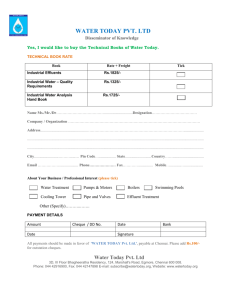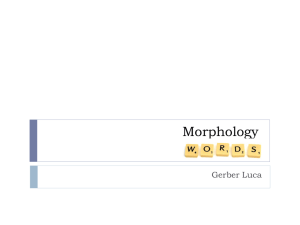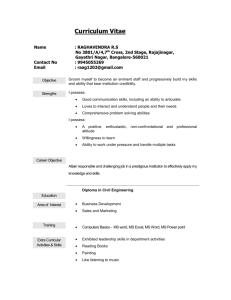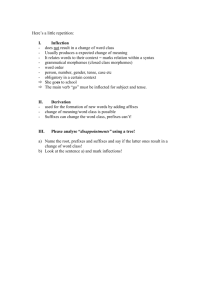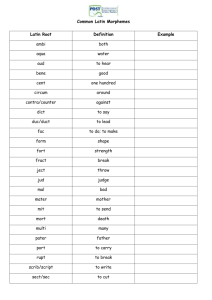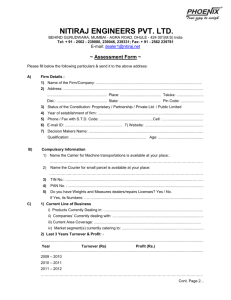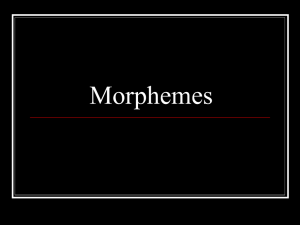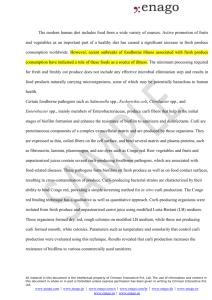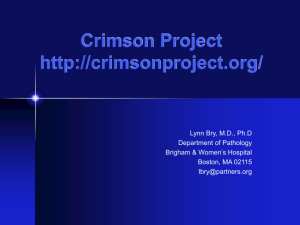Motor unit and Electromyogram (EMG )
advertisement
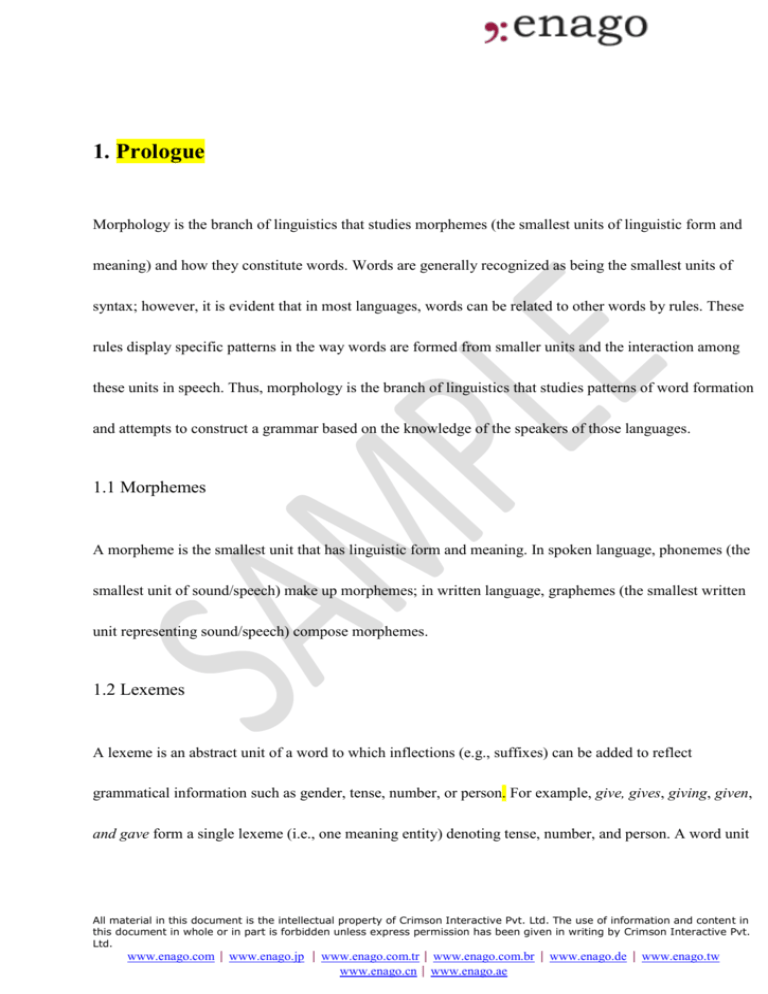
1. Prologue Morphology is the branch of linguistics that studies morphemes (the smallest units of linguistic form and meaning) and how they constitute words. Words are generally recognized as being the smallest units of syntax; however, it is evident that in most languages, words can be related to other words by rules. These rules display specific patterns in the way words are formed from smaller units and the interaction among these units in speech. Thus, morphology is the branch of linguistics that studies patterns of word formation and attempts to construct a grammar based on the knowledge of the speakers of those languages. 1.1 Morphemes A morpheme is the smallest unit that has linguistic form and meaning. In spoken language, phonemes (the smallest unit of sound/speech) make up morphemes; in written language, graphemes (the smallest written unit representing sound/speech) compose morphemes. 1.2 Lexemes A lexeme is an abstract unit of a word to which inflections (e.g., suffixes) can be added to reflect grammatical information such as gender, tense, number, or person. For example, give, gives, giving, given, and gave form a single lexeme (i.e., one meaning entity) denoting tense, number, and person. A word unit All material in this document is the intellectual property of Crimson Interactive Pvt. Ltd. The use of information and content in this document in whole or in part is forbidden unless express permission has been given in writing by Crimson Interactive Pvt. Ltd. www.enago.com | www.enago.jp | www.enago.com.tr | www.enago.com.br | www.enago.de | www.enago.tw www.enago.cn | www.enago.ae independent of inflections is called a lexeme, and a word unit having minimal or no inflection is called a lemma. 1.3 Compounds Using the Wikipedia definition, a compound is a lexeme (a word) that consists of more than one stem (main part of a word). There are three types of compounds—endocentric compounds, where AB is an instance of B (e.g., teaspoon); exocentric compounds, where AB is neither an A nor a B but a C associated with AB (e.g., birdbrain); and copulative compounds, where AB is A and B (e.g., producer-director). All material in this document is the intellectual property of Crimson Interactive Pvt. Ltd. The use of information and content in this document in whole or in part is forbidden unless express permission has been given in writing by Crimson Interactive Pvt. Ltd. www.enago.com | www.enago.jp | www.enago.com.tr | www.enago.com.br | www.enago.de | www.enago.tw www.enago.cn | www.enago.ae
